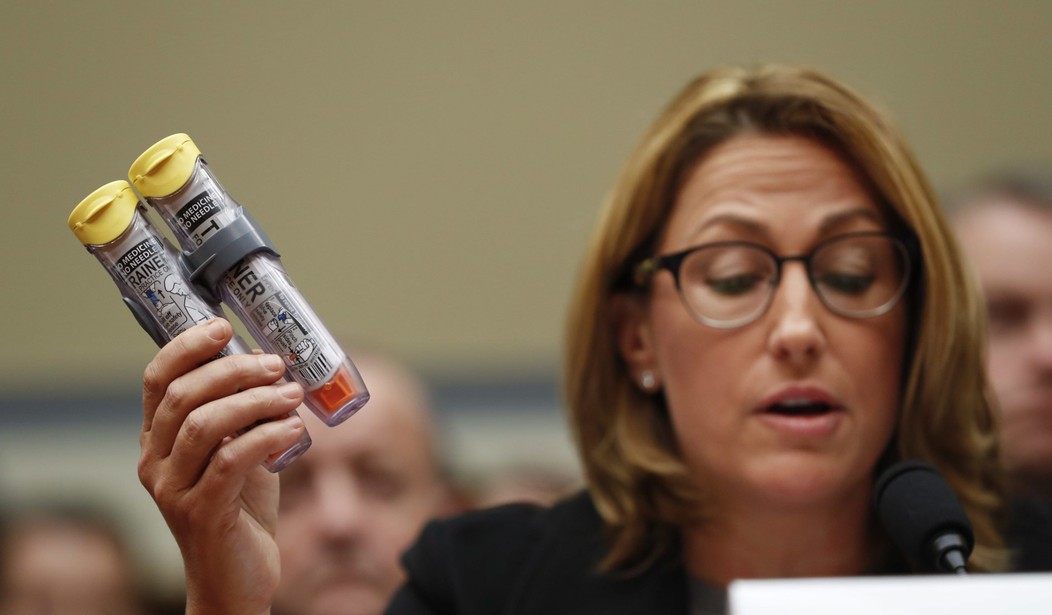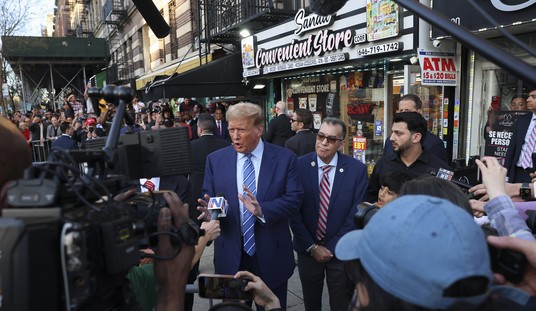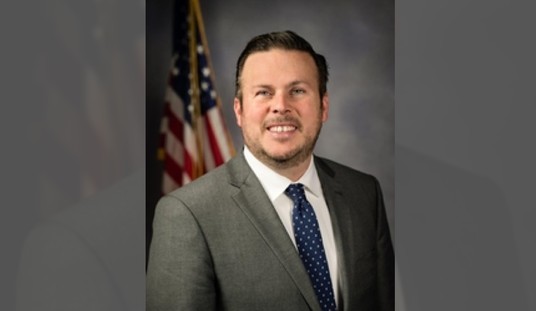WASHINGTON – The CEO of pharmaceutical products giant Mylan defended her company’s pricing scheme for its EpiPen Auto-Injectors before a House panel Wednesday, but an obviously peeved and bipartisan group of lawmakers registered their antipathy over what they considered price gouging.
Heather Bresch, who also happens to be the daughter of Sen. Joe Manchin (D-W.Va.), told the House Committee on Oversight and Government Reform that the EpiPen, a device used in emergency situations to treat dangerous allergic reactions, is not a big money maker for her firm and at this time there is no intention to lower the cost.
The price of the EpiPen has skyrocketed by more than 500 percent since Mylan acquired the company marketing the device in 2007. A two-pack currently lists at $608, placing it out of the range of many allergy sufferers.
“I know there is considerable concern and skepticism about the pricing,” Bresch said. “I think many people incorrectly assume we make $600 off each EpiPen. This is simply not true.”
According to Bresch, while the retail price of a two-unit pack of EpiPen Auto-Injectors is $608, Mylan receives only $274 after rebates and various fees.
“Then you must subtract our cost of goods, which is $69,” she said. “This leaves a balance of $205. After subtracting all EpiPen Auto-Injector related costs our profit is $100, or approximately $50 per pen.”
The misperception over profits, she said, “is understandable, and at least partly due to the complex environment in which pharmaceutical prices are determined.”
The pricing of a pharmaceutical product “is opaque and frustrating, especially for patients.”
Mylan estimates that 85 percent of EpiPen users pay less than $100 for a two-unit package, and the majority pay less than $500. The company has provided 700,000 free devices to schools over the past four years. At least 11 states have passed laws requiring school districts to maintain the pens in case of emergency.
But Rep. Tammy Duckworth (D-Ill.) noted that Mylan requires districts that want to buy the EpiPen at a discount to agree they will not purchase a competing product. Currently, three other companies produce similar devices.
“Looking back, I wish we had better anticipated the magnitude and acceleration of the rising financial issues for a growing minority of patients who may have ended up paying the full price or more,” Bresch said. “We never intended this.”
Bresch told the panel that she has “spent my entire career working to break down barriers, expand access to high-quality medicines and lower healthcare costs” and stands by the pricing.
“It troubles me greatly that the EpiPen product has become a source of controversy,” she said.
Since acquiring EpiPen, Bresch insisted, Mylan has “worked diligently” and invested more than $1 billion “to enhance the product and make it more available.”
“On many fronts we have succeeded,” she said. “We put a much improved EpiPen device on the market in 2009. We’ve also invested so that we can soon offer a longer shelf life, which means patients will go longer before needing a refill. We have now reached 80 percent more patients. And today, approximately 85 percent of EpiPen patients pay less than $100 for a 2-unit package and a majority pay less than $50.”
But a slew of lawmakers quickly dismissed her claims, noting that the EpiPen has been a cash cow for Mylan, bringing in millions of dollars, and that Bresch’s own salary comes to about $18 million annually.
“The greed is astounding — it’s sickening and disgusting,” said Rep. John Duncan (R-Tenn.). “I’m a very conservative, pro-business Republican, but I am really sickened by what I heard today, and what I’ve read before about this situation.”
Rep. Elijah Cummings (D-Md.), the committee’s ranking member, sided with Duncan, maintaining that Mylan is simply another drug company that “jacked up the price of a life-saving product for no discernable reason.”
Mylan, Cummings said, hiked the price “to get filthy rich at the expense of our constituents.”
“In Mylan’s case, they had a virtual monopoly over the market, and they took advantage of it,” Cummings said. “They use the simple but corrupt business model that other drug companies have repeatedly used: find an older, cheap drug that has virtually no competition, and then raise the price over and over and over again.”
Consumer distress over EpiPen pricing reached a fever pitch in August, the month where the device experiences the biggest sales as parents make large purchases in preparation for school. The device contains epinephrine, which counters anaphylaxis, a potentially fatal allergic reaction.
Over the past year, Mylan has reportedly sold about two million two packs. Bresch said her company is in the process of developing a generic version of the device that could sell for as low as $300.








Join the conversation as a VIP Member